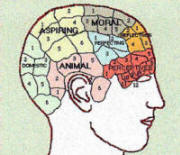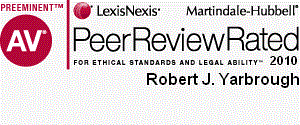Newsletter Issue 30 - August 2011
In this issue:
Copyright Infringement and the Vanishing
Corporate Veil
Patent Reform is Broken
When is Computer Software an Unpatentable Mental
Process?
Copyright Infringement and the Vanishing Corporate Veil
Protecting oneself from personal liability is top on the list when a business owner forms a corporation or similar entity. Lawyers and courts refer to this protection as the "corporate veil". Be careful, though, because your corporate veil is not armor clad. Larry Chasin, president of Ideal Diamond Solutions, Inc. (IDS), learned this the hard way when a competitor, Blue Nile, Inc. (Blue Nile), sued him and his company for copyright infringement. Apparently, IDS, which provided e-commerce solutions for jewelry stores, maintained certain websites on which were displayed images of diamonds and other jewelry copied directly from Blue Nile's web site. Blue Nile, an online jewelry and diamond retailer, sued Chasin
for copyright infringement and other claims in the U.S. District
Court for the Western District of Washington in Seattle.
Blue Nile, Inc. v.
Ideal Diamond Solutions, Inc., et al., No. C10-380Z (August 3,
2011). Chasin argued against his being held liable for copyright infringement: his was a small company, he had no role in creating the infringing websites, and he had no knowledge that the content was copyrighted by Blue Nile. The court listened but was unconvinced, noting that Chasin was the man in charge: Chasin was the "brainchild" and he "controlled the corporate affairs." According to the court, he may have been an innocent infringer -- that is, without knowledge that images were infringing -- but lack of knowledge did not protect him from liability (although it may be relevant to damages). The court wrote,
Copyright is a strict liability tort; therefore there is no corporate veil and all individuals who participate are jointly and severally liable . . . It is well established that a corporate officer will be liable as a joint tortfeasor with the Corporation in a copyright infringement case where the officer was the dominant influence in the Corporation, and determined the policies which resulted in infringement.
The Blue Nile case teaches important lessons for both the copyright holder and the user of copyrighted materials. For the holder, it demonstrates the importance of registering your copyrights. Copyright Registration gave Blue Nile the right to sue in federal court and to collect statutory damages (and attorneys fees). For users of copyrighted material, Blue Nile also carries an important warning. Corporate officers, whether your company is big or small, may be personally liable for the infringing activities of the company. If you are using content created by others be sure that you have the appropriate rights to copy it. If you don't know, hire a copyright lawyer to advise you.Adam Garson
Patent Reform is Broken
The
United States' patent system is broken. It should be fixed. Doing so
will improve America's competitive position in the world. Bad
patents should not be granted. Patents should be examined more
quickly. Inventors should be encouraged to invent new technologies
and get them to market.
It would be difficult to find anyone to disagree with these
sentiments. And yet, the pending "reform" legislation now before the
United States Senate does little, if anything to address the defects
in the patent system, and instead introduces new laws that in many
respects, are a patchwork of give-aways to large donors and foreign
corporations at the expense of small inventors and university-based
researchers. In short, it is Patent Reform that is, itself, broken.
During the Constitutional Convention in 1787, the delegates
witnessed a demonstration of a new steamboat on the Delaware River,
and realized that promoting technical progress would propel the
future of the United States. They added the Patents and Copyrights
Clause to the draft of the Constitution days later, and it was
Thomas Jefferson who issued the first patent. At the time, few
nations had any legal protections for inventors. Today, over 7
million US patents later, a large percentage of new patent
applications come from foreign inventors, and Congress has been
convinced that patents should be awarded, not to the first to
invent, but to the first to run into the Patent Office - the
standard used by most of the other countries, but never before by
the US. The only benefit of such a change is the goal of
"harmonization" of patent laws - in other words, it's the "Eat at
Joe's" standard (if 20 million roaches eat there, it must be good!)
The pending legislation is rife with land-grabs, give-aways, and
theft of the fees paid by inventors to have their applications
examined, and will do little to either decrease the time it takes to
get a patent, or increase the quality of patents. It will, however,
make it prohibitively expensive for individual inventors, small
businesses, and universities to protect their inventions, or to
profit from them - and this will be a boon to large US and
multinational corporations, which have long-believed that it is a
nuisance for them to have to deal with inventors and researchers, or
to pay royalties for using their inventions.
Those involved with the patent bill point out that it has been a
long time in the making - legislation was first introduced nearly
six years ago, and it is time that it passed. This argument amounts
to urging us to eat a meal that is tainted, simply because the cook
has worked so very hard on its preparation. It is no argument at
all. If it comes to his desk, the President should see the bill for
what it is - fatally flawed, and a catastrophic departure from over
200 years of American success in innovation - and he should veto it.
Truly repairing our patent system is a job that requires not only
fixing the bureaucracy of the Patent Office, but fixing the way that
patents are litigated to provide prompt and efficient justice - both
for inventors and those who wish to build on earlier inventions. It
appears that as in so many other areas, this Congress is just not up
to the challenge.
Lawrence Husick
When is Computer Software an Unpatentable
Mental Process?
On August 16, 2011, the Federal Circuit Court of Appeals in
CyberSource v Retail Decisions concluded that a claim to a
method for detecting Internet fraud was not patentable. The court
also concluded that a claim to computer memory storing software to
implement the method also was not patentable. The Federal Circuit
treated the claim to computer memory as no different from the
unpatentable method claim.
Under this and other decisions, if a method of doing something can
be performed as a mental process entirely within a person's head,
the method is "abstract" and not patentable regardless of how
valuable, useful, novel or unobvious the method may be. A computer
programmed to implement the unpatentable method also is not
patentable.
Does this mean that your computer-implemented invention is an
abstract mental process and unpatentable? If your invention requires
specific systems and hardware, such as the Internet, a GPS receiver,
or a computer capable of comparing an image pixel-by-pixel to a
noise mask, then your invention should pass muster. If your
invention is one that could be performed entirely in a person's
head, then talk to us. We can help avoid the effects of the
CyberSource decision.
Robert Yarbrough

